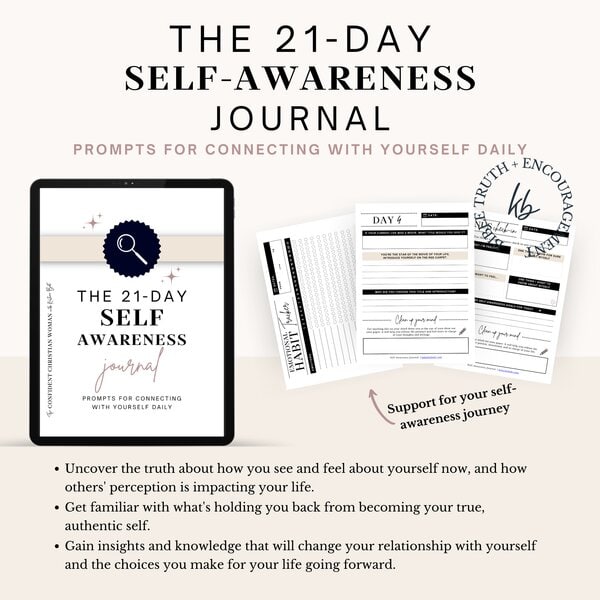How to Know If You’re Emotionally Lazy or Misunderstood
Inside: Are you emotionally lazy, or have you been misunderstood and misjudged? Seven simple questions can help you figure it out and decide what to do next.
“Fine, you’re right!” I spat out, finally defeated. I hung my head and rubbed my drooping, exhausted eyes. Then just loud enough so he couldn’t force me to repeat it, I admitted, “I’m emotionally lazy.”
There it was. The admission my boyfriend had worked without ceasing to drag out of me.
Hours of verbal sparring, of countering his accusations with arguments he snidely dismissed as weak and insubstantial.
Hours of feeling trapped in a twilight zone where I—who had been minding my business, just trying to be a good person—had yet again ended up the bad guy.
Endless hours of enduring his hounding to fess up to being wrong yet again.
After long, exhausting hours of resistance, I found myself exactly where he wanted me—in the familiar, inescapable corner I’d been trying to avoid.
I found myself crushed and badgered into agreeing with his amateur diagnosis of my emotional laziness. His stamina was greater than mine and I couldn’t withstand his “logic” anymore.
It seemed so solid that no matter how wrong it felt, I couldn’t find a way to invalidate it. So eventually I had to swallow my protests, concede defeat, and agree.
But still. Me? Emotionally lazy?
Could he be right? Could it really be true?
What Does Emotionally Lazy Mean?
This scene played out countless times over the interminable years of my toxic relationship. Every single time, I was outargued, harassed, ruthlessly maneuvered, and methodically worn down into agreeing to logical-sounding, wrong conclusions about me.
In this particular instance, he once again got me to say I was emotionally lazy and immature. Which was secretly nuts to me because I was anything but lazy—the results of my life were proof enough. Still, I let myself be harangued into agreeing with him.
You feel me, right? Because you’ve been there or you’re there right now. Accused of being emotionally lazy and wondering what to do about it.
But before we talk solutions, let’s get on the same page about what emotional laziness even means.
What Emotional Laziness Isn’t
The internet is a treasure trove of misinformation about emotional laziness. So let’s talk about what it isn’t before we define what it is.
First, being emotionally lazy has nothing to do with meeting your partner’s needs. This is because your emotional work isn’t about other people. If it is—if your purpose is to please someone else or make them love you more or accept you—you’re almost sure to be doomed to failure.
This is true for a couple of reasons:
- As grown human adults, you’re each responsible for your own feelings. You can’t make them feel anything. Their thoughts about your actions determine how they feel. And really, they can interpret your actions any way they want, which means they can choose to think anything they want. You have no control over what goes on in their mind, no matter what they say.
- No person on Earth can meet all of your emotional needs. The space in your heart you’re so desperate for someone else to fill is shaped and designed to accommodate God, and God alone. No one else will fit it to perfection.
Second, being emotionally lazy doesn’t mean being emotionally unavailable. Emotional unavailability is the inability or unwillingness to create or sustain an emotional connection with other people, usually because you’re afraid to be vulnerable or to get hurt.
Emotionally unavailable people don’t generally have rich, healthy relationships—romantic or platonic—because they refuse to share their true thoughts and feelings through honest, open communication.
Finally, emotional laziness isn’t the same as emotional weakness. Emotionally weak people habitually struggle to cope with their emotions in a healthy, balanced way. Not only when they’re emotionally exhausted, but as a general way of life.

So What Is Emotional Laziness?
In a nutshell, if you’re emotionally lazy, you’re unwilling to do the work to know yourself. You don’t make it a habit to go deep with yourself, to probe your inner thoughts and feelings.
Emotionally lazy people usually have a pretty shallow thought life because they prefer to stay in their emotional comfort zone.
When you live an emotionally lazy life, other people see you more clearly than you see yourself. This results in them knowing you better than you know yourself. Which can make you feel all of two inches tall when you’re dealing with a slick, habitual critic who you can’t argue with or tune out.
All because you didn’t do the emotional work to know yourself well enough to stand your ground or dismiss them.
Related: 31 Journaling Prompts When You Need To Know, “Who Am I?”
But let’s face it: emotional work isn’t usually easy. At the very least, it’s a little uncomfortable. At worst, it’s downright difficult and painful. So who can blame you for defaulting to your comfort zone? This is a natural, normal reaction.
But lucky for you, you have a beautiful brain you can put to work making hard decisions and following through on them. So if you do turn out to be emotionally lazy, you don’t have to stay that way.
Are You Emotionally Lazy or Misunderstood?
Now you know the definition of emotional laziness. So it’s time to use a few questions to figure out if your Negative Nelly is right. They could be, but it’s also possible you’re misunderstood, even by yourself.
To be fair, being misunderstood can look an awful lot like emotional laziness. But the difference is in motivation and ability.
At the heart of emotional laziness is an unwillingness to do the work. Meanwhile, at the heart of being misunderstood is ignorance about the need to do the work in the first place.
The good news is, once you dive in, it’s not hard to tell the difference. And once you identify where you’re falling down, you can choose to do something about it. Then you’ll take back your power and stop letting them railroad you into admitting untrue things about yourself.
How to Know If You’re Emotionally Lazy
Diagnosing yourself as emotionally lazy or misunderstood isn’t difficult. You only need these 7 questions plus a commitment to being honest with yourself.
1. Do you know how to do the emotional work?
Nothing against how your parents raised you, but you may not know how to do the necessary emotional work because no one ever taught you.
In this case, you’re not emotionally lazy. You simply lack the necessary know-how.
The good news is, it’s never too late to learn. The better news is, there’s no shortage of godly resources to help you, starting with the Bible.
I pondered the direction of my life, and I turned to follow your laws.
Psalm 119:59 (NLT)
You can find lots of helpful resources when you don’t know who you are and need practical guidance on how to do the emotional work.
Related: What Does God Say About Me? 25 Powerful Scripture Confessions
2. Are you doing what you’ve been taught, emotionally speaking?
Again, nothing against your parents, but you may be doing what your childhood conditioned you to do. Which is to lock down feelings you perceive as negative because either you saw them expressed in an unhealthy way, or you didn’t see them expressed at all. This habit of avoiding negative emotions means you end up dodging thorny emotional issues altogether.
In this case, you’re not emotionally lazy. You simply lack the necessary tools to process your feelings in a healthy way.
If this has been your habit, you may have noticed by now that suppressing your feelings doesn’t make them go away. All it does is make them fester. Meanwhile, dealing with them head-on has the opposite effect.
Confess your sins to each other and pray for each other so that you may be healed.
James 5:16a (NLT)
One simple way to face and process your feelings is to journal them out. Whether you’re confused, angry, or hurt, journaling about your emotions is a great first step to processing them.
A good next step is to calmly and appropriately share them, with intention. Not to blame or create separation, but to communicate with honesty and love so you can stay connected, even in your pain.
Bonus: As a bonus for joining my weekly newsletter, get this free download—The Instant Pep-Talk Pack. It has 8 Scripture cards to help boost your confidence and ramp up your courage.
3. Are you afraid of what you’ll find?
Fear is a big one. It can be a showstopper for lots of things in your life, including how well you know yourself.
But if you know yourself to be a pretty bold person, what could you possibly fear?
Well, you could be afraid of potentially ugly parts of yourself. You’ll have to acknowledge and deal with them if you dig deep into your emotions.
Who wants to admit they have real negative traits? What if it turns out you’re not good enough, contrary to what you’ve always believed? If you allow yourself to go there, you might find yourself cast emotionally adrift, which can be scary.
In this case, you’re not emotionally lazy. You’re letting fear make your decisions for you.
I know, ouch! But you can’t fix what you won’t face.
Good news, though. Fear may be what you feel, but as a born-again believer in Jesus Christ, it isn’t who you are.
For God has not given us a spirit of fear and timidity, but of power, love, and self-discipline.
2 Timothy 1:7 (NLT)
Related: Hello, Victory & Courage: 3 Powerful Prayers For Fear
4. Is your personality making you look emotionally lazy?
This whole emotional laziness business started somewhere. Probably when your main critic observed a habit or behavior you have and decided it was weird.
For example, my ex-boyfriend started calling me emotionally lazy because he saw that my friend circle was pretty small. On top of this, I didn’t make a big effort to spend a lot of face-to-face time with my small circle.
He called me weird because of this more times than I could ever tell you. But he turned out to be wrong.
You see, while my circle was small, it was mighty. And while our face-to-face interactions weren’t as often as he thought they should be, they were deep and powerful.
If you find yourself in a similar boat, you’re not emotionally lazy. You’re just an introvert.
It’s also possible that your love language—how you express love and expect it to look coming back at you—is different from your main critic’s love language.
In my case, my ex’s love language was quality time. So he judged and condemned me as weird and emotionally lazy because mine wasn’t.
In the same way, what your main critic sees as emotional laziness could simply be a part of your personality. But the truth is, you don’t need to be a cookie-cutter reproduction of anyone else.
In his grace, God has given us different gifts for doing certain things well.
Romans 12:6a (NLT)

5. Are you emotionally asleep?
You may never share this with the person who’s making you think you’re emotionally lazy. But do you sometimes feel like you can’t do this anymore, like your days are grey? Not because your life is bad per se but because you feel like something’s wrong with you, like something’s missing.
This could be because you want to feel like you’re part of something bigger than yourself. Something meaningful, a purpose God wants you to fulfill. Something to drive you out of bed in the morning and power you through the day.
In this case, you’re not emotionally lazy. You’re simply half asleep in your life because it’s missing the passion you crave.
Just so you know, you won’t have this passion until you get after your God-given purpose.
The Lord will work out his plans for my life—for your faithful love, O Lord, endures forever. Don’t abandon me, for you made me.
Psalm 138:8 (NLT)
Related: How to Know What Your Calling Is from God (It’s Life’s Ultimate Joy!)
6. Are you reliving your emotional past?
Maybe conflict isn’t your thing. While some people run toward it, you shy away from it because in your experience, it too often leads to hurt feelings, emotional distance, and bitter regret.
In this case, you’re not emotionally lazy. You simply prefer peace and value self-control.
Never pay back evil with more evil. Do things in such a way that everyone can see you are honorable. Do all that you can to live in peace with everyone.
Romans 12:17-18 (NLT)
Of course, conflict is sometimes necessary but this doesn’t mean it has to be bad or painful. As it turns out, you can disagree and still maintain peace.
Remember though, this isn’t fully dependent on you. Your conflict partner is free to choose how they want to engage in the conflict. But you can set boundaries to help you maintain your peace.
7. Is it really about you?
Be careful with this last question. You can easily use it as a way to dodge facing your issues. But your main critic may be a pro at turning everything around on you to avoid their own insecurities.
After all, it’s the rare person who can see others with crystal clarity. Every human being’s perspective is colored by their own judgments, personal experiences, prejudices, and thoughts.
In this case, you’re not emotionally lazy. Your main critic is judging you based on who they are.
Every way of a man is right in his own eyes, but the Lord weighs the heart.
Proverbs 21:2 (ESV)
Now, don’t shortchange yourself by saying, “I’m a good person at heart, which means they must be totally wrong about me.”
You’re human and therefore imperfect, so you for sure have your own very real issues to handle. And you’ll do yourself no favors by burying your head in the sand on purpose and ignoring them. You’ll only end up pushing yourself firmly into the emotional laziness camp.
Still, as you turn over your main critic’s accusation in your mind, remember one thing: Their psychoanalysis isn’t objective so it’s not one hundred percent reliable.
One way to know if their point is valid is to ask the Holy Spirit to convict (not condemn!) you of whatever truth is in their words to you.
The Friend, the Holy Spirit whom the Father will send at my request, will make everything plain to you. He will remind you of all the things I have told you.
John 14:25 (MSG)

Emotional Laziness Is a Choice
One or all of these 7 questions may resonate with you and you may decide you’re just misunderstood. Or your main critic may turn out to be right and you really are emotionally lazy. Or you may be a mixture of both—emotionally lazy and misunderstood.
If you find you’re on the lazy side of the scale, you now have 2 choices:
- You can choose to stay in your emotional laziness. Nobody can make you change, and you should only do so if you want to, not because you feel browbeaten and forced. Still, you can change your mind whenever you’re ready.
- You can choose to kick emotional laziness to the curb starting now by learning how to look within, face your fear, and accept yourself just as you are.
If you choose option 2, here’s what to do now to break out of your emotional laziness.
How to Not Be Emotionally Lazy
Now that you know the signs of emotional laziness, how do you avoid or stop emotional laziness?
First, face the truth: You’ve been unwilling to do the work of knowing yourself better, whether it was intentional avoidance or an unintentional habit.
Once you’ve done this, move on to the next steps.
1. Practice digging into your thoughts and emotions.
Journaling helps you get it all out. Once you do, go back over what you’ve written and dig deeper into why you think and feel the way you do.
2. Don’t be afraid to face what might be hidden.
When you’re afraid of what you may uncover, remember one thing. The worst thing you can experience is a feeling, which isn’t dangerous and can’t kill you. No matter what your fearful brain says.
3. Leave your past in the past.
Write a new emotional present and future for yourself by deciding on purpose how you want to show up in each sphere of your life. Then make choices every day which support your decision.
All of this sounds easy enough. But if emotional laziness is a habit you’ve practiced all your life, breaking the habit can be uncomfortable or even downright difficult.
This is why you’ll need to be deliberate. Decide ahead of time to be committed to a new way of emotional living. Then when it feels hard, remind yourself of 3 things:
- You can do hard things.
- When it feels hard, don’t make it mean anything except that it feels hard.
- It can be hard and you can do it anyway.
A Resource to Beat Emotional Laziness
As I said, you’re the only one who can decide to stop being emotionally lazy. And when you make this choice, you stop giving away your power to others’ opinions of you and start tuning into your inner life with curiosity and even excitement.
To do this, you need to get to go deep with yourself so you can ditch emotional laziness and become the boss of your emotional life. A journal with daily prompts can help.
The 21-Day Self-Awareness Journal will guide you on your journey to true self-awareness. Because when you know yourself inside out, you remove yourself from the mercy of others’ tyrannical opinions of you. Each day, it gives you a self-awareness journal prompt, so you shine a light on your true feelings, opinions, and desires.
Get the Self-Awareness Journal and use it to take your relationship with yourself to the next level, and change your life.
Your Quick Checklist of Questions to Know If You’re Emotionally Lazy
Whew! What a journey. Admitting you’re emotionally lazy isn’t easy but it’s a great step in the right direction. Because your reward for this journey is emotional maturity as you get to know yourself better than anyone else does, except God.
So if you ever again need to check if you’re emotionally lazy, ask yourself these 7 questions:
As it turned out, my ex was wrong and I wasn’t emotionally lazy. I was misunderstood but didn’t know it. If this is true for you too, you’ve already taken a giant leap forward in your emotional journey just by reading this article. You know yourself a little better because you’re clear on the signs that you’re simply misunderstood.
One way or another—whether you’re emotionally lazy or misunderstood—when you know yourself better, you can make more intentional decisions about who you want to be. And when you empower yourself to make those decisions, you end up taking more self-supportive, intentional actions.
Remember, wherever you are on the journey, you can prayerfully take your next step with God’s help.
O Lord, you have examined my heart and know everything about me.
Psalm 139:1 (NLT)
Once you do, you’re one step closer to never getting cornered into conceding to someone else’s wrong opinions about you. Ever again.




5 Comments